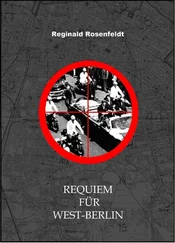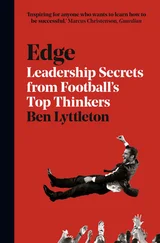Isaiah Berlin - Russian Thinkers
Здесь есть возможность читать онлайн «Isaiah Berlin - Russian Thinkers» весь текст электронной книги совершенно бесплатно (целиком полную версию без сокращений). В некоторых случаях можно слушать аудио, скачать через торрент в формате fb2 и присутствует краткое содержание. Год выпуска: 0101, Жанр: Старинная литература, на русском языке. Описание произведения, (предисловие) а так же отзывы посетителей доступны на портале библиотеки ЛибКат.
- Название:Russian Thinkers
- Автор:
- Жанр:
- Год:0101
- ISBN:нет данных
- Рейтинг книги:3 / 5. Голосов: 1
-
Избранное:Добавить в избранное
- Отзывы:
-
Ваша оценка:
- 60
- 1
- 2
- 3
- 4
- 5
Russian Thinkers: краткое содержание, описание и аннотация
Предлагаем к чтению аннотацию, описание, краткое содержание или предисловие (зависит от того, что написал сам автор книги «Russian Thinkers»). Если вы не нашли необходимую информацию о книге — напишите в комментариях, мы постараемся отыскать её.
Russian Thinkers — читать онлайн бесплатно полную книгу (весь текст) целиком
Ниже представлен текст книги, разбитый по страницам. Система сохранения места последней прочитанной страницы, позволяет с удобством читать онлайн бесплатно книгу «Russian Thinkers», без необходимости каждый раз заново искать на чём Вы остановились. Поставьте закладку, и сможете в любой момент перейти на страницу, на которой закончили чтение.
Интервал:
Закладка:
and make a new beginning. They must purge their minds of theories,
of false, quasi-scientific analogies between the world of men and the
world of animals, or of men and inanimate things. Only then will they
be able to re-establish a personal relationship with the uneducated-a
relationship which only humanity and love can achieve.
In modern times only Rousseau, and perhaps Dickens, seem to him
to have seen this. Certainly the people's condition will never be
improved until not only the tsarist bureaucracy, but the 'progressists',
as Tolstoy called them, the vain and doctrinaire intelligentsia, are
knows what the previous generations have thought, whereas they do not
know what future generations would think. The equality is between the
teacher and the taught; this desire for equality on the part of both is itself
for him the spring of progress- progress in the sense of'advance in knowledge'
of what men are and what they should do.
240

TOLSTOY AND E N L I G H TENM ENT
'prised off the people's necks' -the common people's, and the children's
too. So long as fanatical theorists bedevil education, little is to be hoped
for. Even the old-fashioned village priest-so Tolstoy maintains in
one of his early tracts-was less harmful : he knew little and was clumsy,
idle, and stupid; but he treated his pupils as human beings, not as
scientists treat specimens in a laboratory; he did what he could; he
was often corrupt, ill-tempered, unjust, but these were human
'natural' -vices, and therefore their effects, unlike those of machinemade modern instructors, inflicted no permanent injury.
With these ideas it is not surprising to find that Tolstoy was personally happier among the Slavophil reactionaries. He rejected their ideas; but at least they seemed to him to have some contact with
reality-the land, the peasants, traditional ways of life. At least they
believed in the primacy of spiritual values and the futility of trying
to change men by changing the more superficial sides of their life
by political or constitutional reform. But the Slavophils also believed
in the Orthodox Church, in the unique historical destiny of the Russian
people, the sanctity of history as a divinely ordained process, and therefore the justification of many absurdities because they were native and ancient, and therefore instruments in the divine tactic; they lived
by a Christian faith in the great mystical body-at once community
and church-of the generation of the faithful, past, present, and yet
unborn. Intellectually Tolstoy repudiated this, temperamentally he
responded to it all too strongly. He understood well only the nobility
and the peasants; and the former better than the latter; he shared
many of the instinctive beliefs of his country neighbours; like them
he had a natural aversion to all forms of middle-class liberalism: the
bourgeoisie scarcely appears in his novels. His attitude to parliamentary
democracy, the rights of women, universal suffrage, was not very
different from that of Cobbett or Carlyle or Proudhon or D. H.
Lawrence. He shared deeply the Slavophil suspicions of all scientific
and theoretical generalisations as such, and this created a bridge which
made personal relations with the Moscow Slavophils congenial to
him. But his intellect was not at one with his instinctive convictions.
As a thinker he had profound affinities with the eighteenth-century
philosopher. Like them he looked upon the patriarchal Russian state
and Church, which the Slavophils defended, as organised and hypocritical conspiracies. Like the great thinkers of the Enlightenment he looked for values not in history, nor in the sacred missions of nations
or cultures or churches, but in the individual's own personal experience.
;l
R U S S IAN TH INKERS
Like them, too, ht! bdieved in eternal (and not in historically evolving)
truths and values, and rejected with both hands the romantic notion of
race or nation or culture as creative agents, still more the Hegelian
conception of history as the self-realisation of self-perfecting reason
incarnated in men or in movements or in institutions (ideas which
had deeply influenced his generation) -all his life he looked on this as
cloudy metaphysical nonsense.
This clear, cold, uncompromising realism is quite explicit in the
notes and diaries and letters of his early life. The reminiscences of
those who knew him as a boy or as a student in the University of
Kazan reinforce this impression. His character was deeply conservative, with a streak of caprice and irrationality; but his mind remained calm, logical, and unswerving; he followed the argument easily and
fearlessly to whatever extreme it led him -a typically, and sometimes
fatally, Russian combination of qualities. What did not satisfy his
critical sense, he rejected. He left the University of Kazan because
he decided that the professors were incompetent and dealt with trivial
issues. Like Helvetius and his friends in the mid-eighteenth century,
Tolstoy denounced theology, history, the teaching of dead languagesthe entire classical curriculum-as an accumulation of data and rules that no reasonable man could wish to know. History particularly
irritated him as a systematic attempt to answer non-existent questions
with all the real issues carefully left out: 'history is like a deaf man
replying to questions which nobody puts to him', he announced to
a startled fellow-student, while they were both locked in the university detention room for some minor act of insubordination. The first extended statement of his full 'ideological' position belongs to the
I 86os: the occasion for it was his decision to compose a treatise on
education. All his intellectual strength and all his prejudice went into
this attempt.
In 1 86o, Tolstoy, then thirty-two years old, found himself in one
of his periodic moral crises. He had acquired some fame as a writer:
Sebastopol, Childhood, Adolescence and Youth, two or three shorter tales,
had been praised by the critics. He was on terms of friendship with
some of the most gifted of an exceptionally talented generation of
writers in his country-Turgenev, Nekrasov, Goncharov, Panaev,
Pisemsky, Fet. His writing struck everyone by its freshness, sharpness,
marvellous descriptive power, and the precision and originality of its
images. His style was at times criticised as awkward and even barbarous; but he was unquestionably the most promising of the younger 2.42
TOLSTOY AND E N L I G HTEN M ENT
prose writers; he had a future; yet his literary friends felt reservations
about him. He paid visits to the literary salons, both right- and leftwing (political divisions had always existed and were becoming sharper in Petersburg and Moscow), but he seemed at ease in none of them.
He was bold, imaginative, independent. But he was not a man of
letters, not fundamentally concerned with problems of literature and
writing, still less of writers; he had wandered in from another, less
intellectual, more aristocratic and more primitive world. He was a
well-born dilettante; but that was nothing new: the poetry of Push kin
and his contemporaries, unequalled in the history of Russian literature,
had been created by amateurs of genius. It was not his origin but his
unconcealed indifference to the literary life as such -to the habits or
problems of professional writers, editors, publicists-that made his
Читать дальшеИнтервал:
Закладка:
Похожие книги на «Russian Thinkers»
Представляем Вашему вниманию похожие книги на «Russian Thinkers» списком для выбора. Мы отобрали схожую по названию и смыслу литературу в надежде предоставить читателям больше вариантов отыскать новые, интересные, ещё непрочитанные произведения.
Обсуждение, отзывы о книге «Russian Thinkers» и просто собственные мнения читателей. Оставьте ваши комментарии, напишите, что Вы думаете о произведении, его смысле или главных героях. Укажите что конкретно понравилось, а что нет, и почему Вы так считаете.










